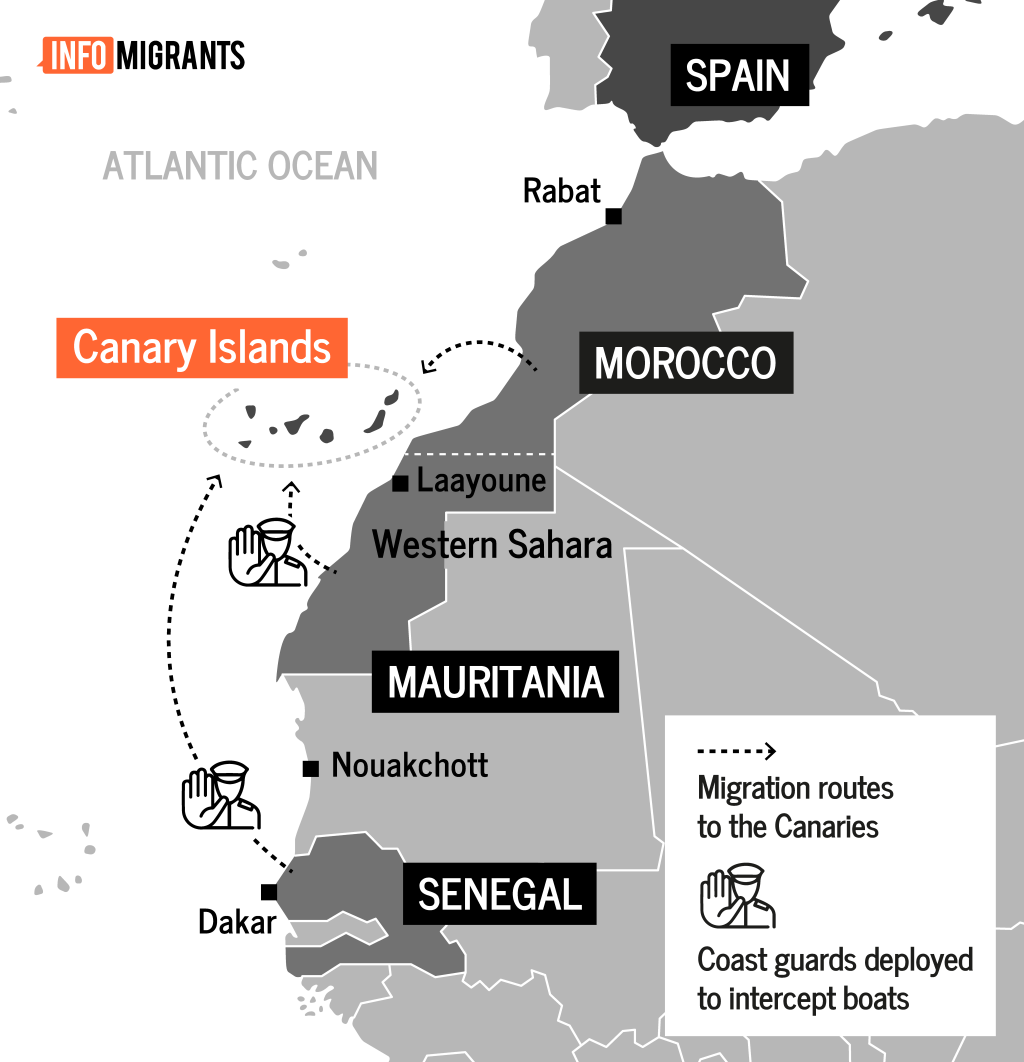The bodies of over 100 African migrants have been recovered from Atlantic waters off the coast of Mauritania since the beginning of the year, according to the country's foreign minister. Neighboring Mali has been heaping criticism on Mauritania for not doing enough to prevent deaths and instead focusing on deportations.
Mauritania's Foreign Minister Mohamed Salem Ould Merzoug referred to the rising number of migrant bodies being retrieved from the see as a "human tragedy," which he said was caused by the activities of criminal groups involved in facilitating irregular migration and migrant smuggling.
"In 2024, more than 500 bodies of young Africans were recovered from our shores, and more than 100 since the beginning of this year," Merzoug said.
"It is imperative to combat these criminal networks and encourage regular, safe and orderly migration, in strict compliance with national legislation and bilateral agreements."
In recent months, Mauritania has emerged as a popular departure spot for African migrants hoping to reach the European Union by heading to Spain's Canary Islands.
But with these sea journeys measuring over 1,000 kilometers in length and the vessels often being unseaworthy and overloaded, fatalities on this migratory route are growing at an alarming rate.

Deportation instead of prevention
In a bid to try and prevent further deaths, the west African nation has now ramped up its efforts to expel foreigners — chiefly Senegalese, Malian, Ivorian and Guinean migrants.
This move, however, has attracted strong criticism throughout the region and has also led to a rise in diplomatic tensions with neighboring countries.
Mali in particular has had some strong words against the Mauritanian government's actions against its citizens there. Deportations from Mauritania to Mali are reportedly marked by a high incidence of violence.
As a result, the government of Mali has called for an immediate end to what it regards as a "flagrant violation of human rights."
Read Also89 migrants confirmed dead after boat capsizes off Mauritania
Row between Mauritania and Mali
In response to the growing diplomatic standoff, Merzoug traveled to the Malian capital Bamako earlier in the week to meet with his Malian counterpart, Abdoulaye Diople, as well as the head of the Malian junta and the de-facto president of the country, General Assimi Goita to discuss "the concerted management of migratory flows," according to information from the Malian presidency.
"A Malian arriving in Mauritania is at home, just like a Mauritanian going to Mali. Those who are legally resident live in peace. The difficulties mainly concern unregistered people, which requires better organization on both sides," Merzoug was reported to have told the two senior leaders.
However, Malian authorities paint a darker picture of the circumstances under which migrants are being returned.
Migrant rights associations in Mauritania like SOS Esclaves have denounced the pre-deportation detention of migrants there "in inhuman conditions."
Read AlsoMali criticizes Mauritania for ill treatment of irregular migrants
A complex geopolitical landscape
In a previous public statement, Mali already called "on the Mauritanian authorities to show restraint" and "for an immediate cessation of violence against Malian nationals."
More than 1,800 Malian nationals are believed to have been intercepted in Mauritania in recent months and sent back to their country.
In total, Mauritania was reported as hosting over 139,000 registered Malian refugees last year, according to UNHCR, in a country with a population just shy of five million people.
Many of those Malians have actually fled to Mauritania in recent years, since successive coups d'etat five years ago, resulted in a military junta taking over their home country.
Both Spain and the European Union have signed direct deals with Mauritania with the aim of reducing the number of departures towards Europe; however, the grim discovery of more than 100 dead bodies floating in the Atlantic just in recent weeks could imply that this strategy is not bearing the results all parties involved are hoping for.
Read AlsoEU launches migration partnership with Mauritania
with AFP
